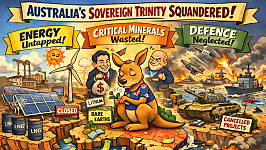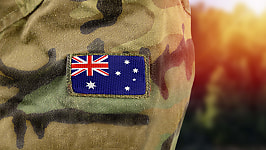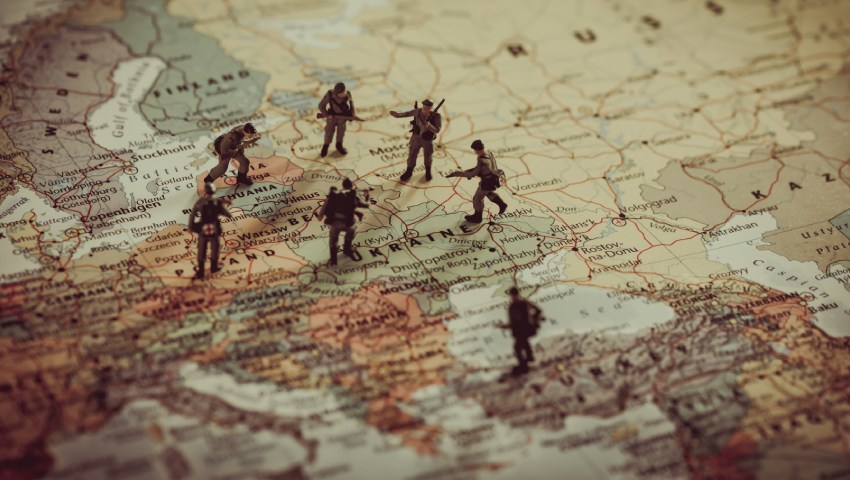The current round of sanctions imposed on Russia will facilitate an immense groundswell of Russian nationalism, prolonging the war in Ukraine and exacerbating the insurmountable valley between Russia and the West.
According to famed international relations thinker John Mearsheimer, sanctions are an offensive tool used by governments to inflict humanitarian punishment on a population, encouraging revolution and consequent regime change.
Obviously, this doesn’t come as a surprise to anyone in defence and international relations.
Though Mearsheimer’s analysis has a catch: sanctions rarely work. And in the case of sanctions on Russia, they will likely weaken the US-led campaign against Russian aggression by fomenting retributive nationalism among Russia’s body politic.
“I think that the question that is really on the table here is: whether or not with sanctions and the costs of war (just the costs of losing people and fighting in Ukraine) … can inflict enough punishment on the Russian people and the oligarchs that they rise up against Putin. This is the question,” Mearsheimer said on a recent discussion with the Committee for the Republic in March.
“And I think there are two reasons that’s not going to happen. States are able to sustain huge amounts of punishment and the population does not rise up against the ruler. You want to think about what we did to Japan in World War II. You want to think about what we did to Germany. You want to think about the literature on sanctions, economic sanctions. Look at Iran. It’s amazing what we’ve done to Iran. Look at Cuba. There have been sanctions on Cuba forever. And these countries don’t throw up their hands.
“So the first point I would make to you is nationalism is a very powerful force. And I think that the Russian people will rally around Putin.”
Citing recent correspondence he has received from curious Russians, Mearsheimer summarised the growing mood in Russia: “The more we push against the Russians in Ukraine and the more we threaten the regime, the more the people will rally around Putin.”
Already, opinion research has demonstrated that Mearsheimer’s hypotheses are coming true.
Polling conducted by the Levada-Center in 2015, in response to sanctions following Russia’s clandestine invasion of Ukraine, illustrated that a majority of the Russian population perceived sanctions on political elites and the military as intended to “weaken and humiliate Russia”.
More recent opinion research from the Levada-Center has demonstrated that those in Russia who hold the US responsible for the war in Ukraine jumped from 50 per cent to 60 per cent in the three months leading to the invasion.
Perhaps Simon Constable in Time put the sanctions dilemma most carefully under the microscope, noting that “sanctions often prompt a country’s population to rally around the flag”.
“A siege mentality takes over with people banding together to weather the storm.”
Beyond the growth of Russian nationalism, US-led sanctions have forced the Kremlin to build new shadow economic, military and political architectures outside of the US-led international order.
Commonly termed as the axis of authoritarianism, these new shadow architectures have only served to expedite a return to multipolarity and reduce the efficacy of sanctions.
Indeed, despite the rounds of sanctions imposed on Russia since 2014:
- Foreign direct investment increased in the country between 2014-19.
- Russia devastated critical European supply chains in response to sanctions, including food bans that required the European Commission to approve €125 million in emergency funding for agribusinesses.
- Sanctions prompted the Kremlin to begin new rounds of outreach with other authoritarian regimes, particularly evidenced with the upcoming Anti-Fascist Conference which is expected to include Azerbaijan, China, India, Pakistan, Saudi Arabia, the UAE and Uzbekistan.
Think tank Chatham House spared no effort to rubbish hints that sanctions are in fact ineffective tools in their report Myths and misconceptions in the debate on Russia.
In the report, Chatham House lists 16 “popular myths” regarding the current conflict between Russia, Ukraine and the US-led international order – one of which is titled “Myth 14: Sanctions are the wrong approach”.
Throughout this analysis, the report rejected the idea that sanctions spur Russians to “rally around the flag”, rebuke the notion that sanctions will hasten a move to multipolarity by forcing Russia to foster greater collaboration with China and play down the humanitarian outcomes of sanctions.
Among evidence for this is that in 2021, after years of sanctions, “Putin’s approval rating stood at 63 per cent – close to historic lows for him.”
Meanwhile, “sanctions are a precision tool” which are designed toward “targeting individuals and sectors with little impact on the wider population”.
Notwithstanding Putin’s stalled popularity (at a mere 63 per cent!), evidence presented by Germany’s Friedrich-Ebert-Stiftung has shone a spotlight on the growing prevalence of anti-Western sentiment among Russia’s youth.
According to a report, 16 per cent of Generation Z consider themselves Russian nationalists (6 per cent higher than the total sum of Russian society).
Meanwhile, 65 per cent of Russia’s Generation Z somewhat-or-strongly agree that Russia “should have a leader who rules with a strong hand for the public good”. Further, 37 per cent of youth don’t care for the existence of a political opposition.
Such figures don’t signal the existence of liberal youth who will propel Russia to reconsider their opposition to the US-led international order.
Further, suggestions that sanctions are a precision tool overlook the downstream impact of sanctions in hierarchical societies – wherein the regime prioritises maintaining the support of the elite “selectorate” (the oligarchs in Russia) and the military to ensure regime stability.
This un-humanitarian distribution of resources will maintain regime existence – but worsen human outcomes.
One need look back no further than sanctions on Iraq where malnourishment was so extreme that a generation of Iraqis had stunted growth, or more recently in Syria where hospitals experienced medical shortages.
Evidence seems to support Mearsheimer’s hypothesis. Sanctions will only facilitate the rise of intense Russian nationalism, and hurt a lot of innocent people along the way.
Get involved with the discussion and let us know your thoughts on Australia’s future role and position in the Indo-Pacific region and what you would like to see from Australia's political leaders in terms of partisan and bipartisan agenda setting in the comments section below, or get in touch with
Liam Garman
Editor – Defence and Security, Momentum Media









